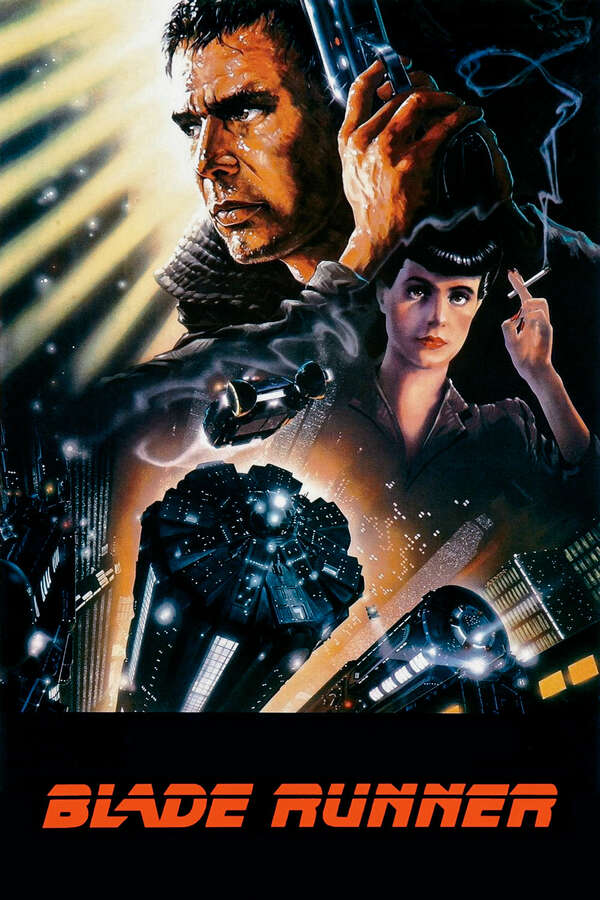Blade Runner, 1982 - ★★★★

I watched Blade Runner more than once, but this time, I did so after reading Do Androids Dream of Electric Sheep. To me, there's no question about it: the movie is much better. No, let me rephrase this. The film is on a different plane.
There's a moment early in the movie where Ford (Decker) walks into the police station to talk to his old boss, who sits in a booth in an otherwise large hall. The camera pans slowly from the heights of the ceiling, showing us a dissolute police station that looks more like a train terminal with rows of empty seats. At one point, it crosses through the ceiling of the smaller booth inside the hall; this is where I paused the film for a moment to admire the details. On the booth roof, among the debrief, there were pieces of facade from the walls next to something that looked like an old rake and a few more pieces of trash. A shot of perhaps 2 seconds showing us junk, nothing significant - and yet, so much attention to detail. Someone thought about this trash, and someone was creative about this trash. This movie goes above and beyond to give you details.
A rich world with future society lights and music aside for a moment (I could go on for an hour about these alone), we have to talk about the actors. There is, of course, Rutger Hauer as Roy Battey and the famous tears in the rain. But Harrison Ford and Sean Young come close second, even when they recite lines from the book that seem a bit out of place. The supporting cast provides additional gravity to the world (Edward James Olmos as Gaff is one of my favorites). And then there's the music, a rich soundtrack I could listen to on a long commute, humming along.
But what makes this movie a masterpiece is not all that there is there, lying in front of us. It's what it implies. Especially today, it brings up the topic of what it means to be a minority group and how, under a certain light, one group can be morally exterminated. It asks us what makes us human and has us watch tests trying to prove just that and (in light of the end of the film) fail spectacularly. It also gives us a vision toward a future, in my opinion, better than the one in the book (which seems to focus more on religion and its role in human life). A future where everyone's different, but everyone's the same. A depressing shadow of a world that was destroyed (was it the war mentioned in the book? An environmental catastrophe? Doesn't really matter) due to the apathy of its inhabitants.
I'm going to watch this one again.
